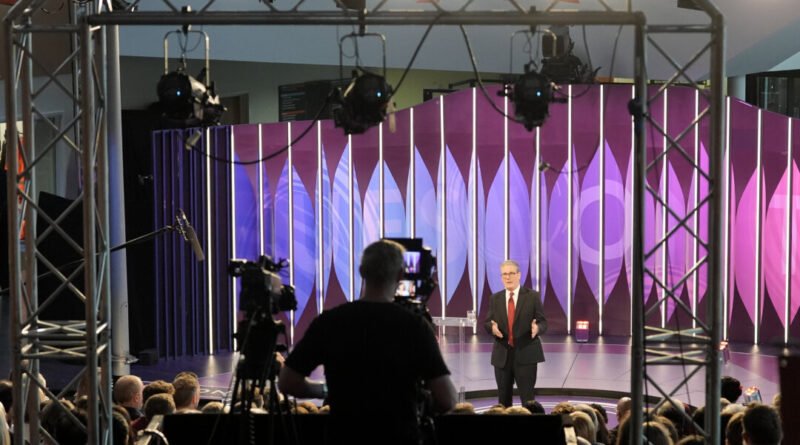Labour Manifesto Raises Concerns about Free Speech According to Watchdog
Campaigners warn that ‘tens of thousands’ could face backlash for challenging woke ideology, according to the Free Speech Union (FSU).
The FSU has identified “red flags” in the Labour Party’s manifesto, which is currently leading in the polls ahead of the general election.
Each party has made their stance on free speech clear, from the Liberal Democrats’ ban on conversion therapies to the Conservatives’ plan to reduce diversity and inclusion efforts.
‘Extremely Worried’
The FSU, a group dedicated to safeguarding free speech in the UK, has thoroughly examined the promises made by each party.
Mr. Young highlighted some of the contentious aspects of Labour’s manifesto, including a proposed ban on conversion practices and the introduction of a Race Equality Act that could lead to legal claims based on ethnicity.
He expressed particular concerns about the conversion therapy ban and its potential impact on families and medical professionals.
He also raised concerns about potential future Labour policies, such as introducing a Hate Crime Bill similar to Scotland’s, criminalizing Islamophobia, and mandating newspapers to join a state-approved press regulator.
Mr. Young emphasized that under Labour, many individuals could face repercussions for expressing views that challenge woke ideologies, leading to widespread censorship.
Race Equality Act
He expressed worries about the implications of the proposed Race Equality Act and its potential to restrict free speech by imposing anti-racism training and penalizing dissenting views in the workplace.
With manifestos released, parties have solidified their positions.
For instance, the Liberal Democrats aim to appoint a Champion for Freedom of Belief, while the Conservatives oppose state control of the press and plan to regulate Equality, Diversity, and Inclusion efforts.
Meanwhile, the Scottish Greens focus on extending equality laws to cover menstruation and menopause, resisting redefining biological sex.

Several parties have expressed strong support for safeguarding free speech.
For example, Reform UK led by Nigel Farage advocates scrapping the Equality Act to combat political bias and promote free speech.
Additionally, The Workers Party of Britain led by George Galloway plans to protect free speech and private lifestyle choices from corporate interference.
The SDP has outlined conditions for public funding tied to upholding free speech.
Just Answer the Question
Marc Glendening, head of cultural affairs at the Institute of Economic Affairs, is running the “Just Answer the Question Campaign” to promote free speech in the general election.
He is urging candidates to respond to direct questions about free speech and democratic rights.
Among the questions posed, candidates are asked about police practices regarding ‘hate’ registers and the freedom of parents and psychotherapists to provide advice against gender changes.
The campaign aims to identify candidates who are champions for free speech based on their responses.
Mr. Glendening reported that a significant number of candidates have been recognized as free speech champions, with notable support from various parties.
He highlighted concerns that Labour could implement restrictive policies that infringe on free speech rights.
He anticipates a shift in political dynamics toward supporting free speech, especially with potential changes in the UK’s political landscape.
Efforts to reach the Labour Party for comment were unsuccessful.





